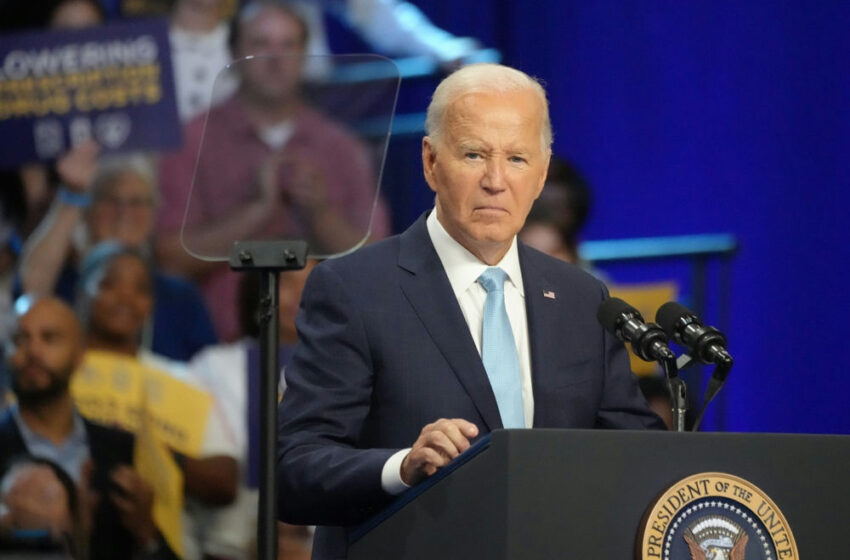Is the White House hiding behind the autopen, or is it just another political witch hunt?
At a Glance
- House Republicans investigate Biden’s use of the autopen for mass pardons.
- No direct evidence yet proving Biden’s lack of awareness in autopen use.
- Biden defends decisions, citing volume of cases as reason for autopen use.
- Use of autopen raises constitutional questions and partisan tensions.
The Autopen Controversy Unveiled
The investigation into former President Joe Biden’s use of the autopen has ignited a fierce political debate. As Biden’s term ended, he authorized the device to sign off on thousands of pardons and commutations. The use of an autopen isn’t new; several presidents, including Donald Trump, have employed it for signing documents. However, the scale of Biden’s actions, reportedly reducing jail time for nearly 4,000 federal convicts, has cast a long shadow of suspicion over his administration, prompting House Republicans, spearheaded by Oversight Committee Chairman James Comer, to dig deeper into the constitutional implications.
Comer and his committee are not pulling any punches. They’re questioning whether Biden truly knew what was being signed in his name. The New York Times reported that while Biden approved the guidelines for these actions, he didn’t personally review or sign each case. This revelation, along with the fact that some White House aides have pled the Fifth, refusing to testify, only adds fuel to the fire. The investigation’s focus on the autopen, a seemingly innocuous device, highlights deeper concerns about transparency, mental fitness, and the legitimacy of executive actions.
The Players and Their Motivations
At the center of this controversy sits Joe Biden, the former President and the man who authorized the mass use of the autopen. His Chief of Staff, Jeff Zients, stands by as a key figure who allegedly authorized the autopen use via email after discussions with Biden. Meanwhile, James Comer leads the charge in holding the administration accountable, with the backing of congressional Republicans eager to spotlight issues of transparency and mental fitness.
The stakes are high. If Biden was indeed unaware of what was being signed, it could constitute a serious breach of constitutional duty. Yet, without concrete evidence, the investigation remains mired in uncertainty. The political landscape is further complicated by the Trump administration’s involvement, which ordered a Department of Justice investigation into Biden’s mental state and the autopen use. The media, ever eager to shape public perception, continues to report on these developments, keeping the controversy alive in the eyes of the public.
Constitutional Questions and Political Fallout
The investigation into the autopen use is more than just a procedural inquiry; it raises significant constitutional questions. Legal experts agree that while the autopen itself isn’t illegal, the delegation of decision-making on such a massive scale is unprecedented. The fact that Biden personally signed only one pardon—his son Hunter’s—during this period exacerbates the scrutiny.
As the House Oversight Committee continues to subpoena and interview former aides, the country watches with bated breath. Biden maintains that he made every decision, using the autopen merely as a tool to manage the volume. However, critics, including former President Trump, call it a “tremendous scandal,” arguing that Biden was out of the loop, unaware of the specifics being signed in his name. The ongoing investigation is not only a test of Biden’s legacy but also a reflection of the deep partisan divide that marks American politics today.
The Road Ahead and Its Implications
The implications of this investigation are far-reaching. In the short term, it casts doubt on the validity of the pardons and commutations signed via autopen, potentially affecting thousands who received clemency. Politically, it fuels the already intense partisan conflict over Biden’s fitness and transparency, with Republicans seizing the opportunity to question his capacity to lead effectively.
In the long run, this controversy could set a precedent for future administrations, prompting new guidelines or legislation regarding the use of autopens and executive accountability. If courts find the process unconstitutional, it could lead to legal challenges against the pardons, further eroding public trust in the government’s ability to make sound, transparent decisions. As the investigation unfolds, the nation must grapple with the broader questions of presidential authority and the mechanisms of executive power.
Sources:
Click this link for the original source of this article.
Author: Editorial Team
This content is courtesy of, and owned and copyrighted by, https://ourpatriot.com and its author. This content is made available by use of the public RSS feed offered by the host site and is used for educational purposes only. If you are the author or represent the host site and would like this content removed now and in the future, please contact USSANews.com using the email address in the Contact page found in the website menu.








